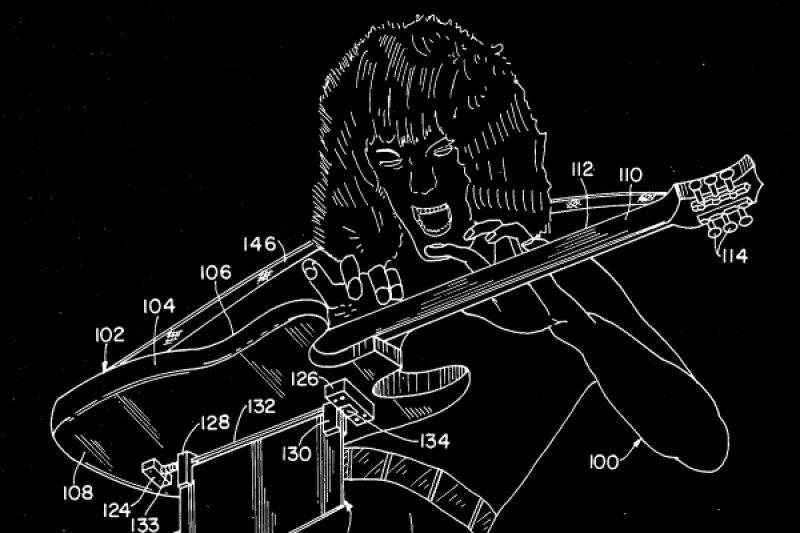Managing IP reports from first virtual AIPPI World Congress and US Patent Forum
This week, the Managing IP editorial team has been busy covering the AIPPI’s first virtual World Congress. Max Walters and Charlotte Kilpatrick reported on several key panel discussions covering important topics such as bifurcation, artificial intelligence inventorship and inconsistency at intellectual property offices.
On the other side of the Atlantic, reporters covered Managing IP’s US Patent Forum, publishing stories on key USPTO changes, business budgeting strategies and AI patenting tactics.
Read our coverage and other Managing IP stories we published this week, here:
In-house: don’t be ashamed to admit you were conned
AIPPI panel: Lawyers hail benefits of bifurcation
AI inventorship takes (virtual) centre stage at AIPPI
Panel: What we would do if 20% of our patent budget were cut
Podcast: fighting counterfeits in Latin America and Caribbean
Why ‘non-trivial quizzes’ are needed to protect trade secrets
USPTO patent boss lays out big changes to exam times and routing
EUIPO lawyer: trademark disclaimers pose language difficulties
Could SCOTUS blow up biosimilars along with Obamacare?
Podcast: Dechert’s three Women in Business Law awards winners
Albright: ‘PTAB process is independent from mine’
How jury trials are affecting US IP: judges and lawyers
Brands reveal how to integrate trademark strategies in M&A
SCOTUS rejects three key IP petitions
In the first petition, TCL had asked SCOTUS to overturn a ruling from the Court of Appeals for the Federal Circuit allowing juries, rather than judges, to decide royalty rates in standard essential patent cases. Managing IP published an analysis of seventh amendment issues earlier this week.
In the Chamberlain v Techtronic petition, the Chamberlain Group had argued that the Federal Circuit had picked its patent claims apart to an unfair degree when deciding on their validity under Section 101.
The appellate court had set out that the claims had to be viewed as a whole and not be broken down to “a single supposed point of novelty”.
In the Stairway to Heaven petition, Michael Skidmore had asked SCOTUS to overturn a March 2020 decision from the Court of Appeals for the Ninth Circuit that Led Zeppelin’s classic song, Stairway to Heaven, did not infringe Taurus, a track written by Randy Wolfe in 1967. IP counsel called this outcome back in August.
However, the high court did not make a decision on the petition in Arthrex v Smith & Nephew, which concerns the constitutionality of administrative patent judges at the Patent Trial and Appeal Board. Managing IP reported at the start of the year that while some practitioners were deeply concerned by the eventual outcome of this case, others were unfazed by it.
SCOTUS also heard oral arguments this week in Google v Oracle, the biggest copyright case of the decade in the US, on whether copyright protection extends to a software interface. Americas reporter Rani Mehta wrote last month about how the case should focus on application programming interfaces.
Rock star Eddie Van Halen, inventor of a musical instrument support, dies at 65

Among his many accomplishments in the music industry, Van Halen received a patent from the USPTO in the 1980s for a supporting device for stringed musical instruments. It was designed to permit total freedom of the guitarist's hands to play the instrument in a new way.
The application (US4656917A) suggested that this support would allow the player to create new techniques and sounds previously unknown to any musician. Because the musical instrument is arranged perpendicularly to the player's body, it stated, the player has maximum visibility of the instrument's entire playing surface.
Van Halen, who passed away after a long battle with throat cancer, co-founded the band Van Halen in 1972 with his brother, drummer Alex Van Halen, along with bassist Mark Stone and singer David Lee Roth.
Daimler signs SEP licensing deal with Sharp
In its press release, Sharp did not mention the agreed cost of the licence nor any further specifics of the arrangement.
The German court in Munich had found in September that Daimler was an unwilling licensee, and granted an injunction which, it said, Sharp could enforce with a security of €5.5 million ($6.5 million).
That ruling came two months after Sharp and Huawei agreed a licence, which led the electronics company to withdraw parts of its lawsuits against Daimler.
CJEU rules industry ‘common practice’ not a factor in trademarks
In its judgment in Aktiebolaget Östgötatrafiken (C‑456/19), the Tenth Chamber disagreed with the Swedish Patent and Registration Office’s rejection of three trademark applications covering a red-and-yellow pattern displayed on buses and trains.
The office had rejected these applications on the basis that they were purely decorative and did not differ significantly from the way in which other transport companies decorated their vehicles.
The CJEU said that the distinctive character of a mark should be assessed “on the perception of the relevant public of the affixing of that sign to those goods, without it being necessary to examine whether that sign departs significantly from the norm or customs of the economic sector concerned”.
This judgment comes after the Patent and Registration Office made a request to the CJEU for a preliminary ruling in the matter.











